When the Federal Reserve adjusts its target interest rate, it can also impact every part of finance in our lives, from mortgages to your 401k to stock market investments and credit card debt.
You see, the federal rate plays a significant role in influencing the interest rates on loans and the returns on savings, making it essential for a wide range of individuals.
So, in this blog, we are going to look at what the recent interest rate increases mean for your finances and your life in general and how we can minimize the impact on you and your family.
Rising interest rates in USA and UK
In the USA, the Federal Reserve Bank announced raising rates of interest by 0.75 percentage points following the September 20th to 21st meeting, bumping the funds’ rate from the Fed to a target range of 3 to 3.25 percent.
In the UK, the Central Bank of England has announced a half percentage point interest rate hike to 1.75%, the most significant increase in 27 years.
Interest Rate Across the Globe
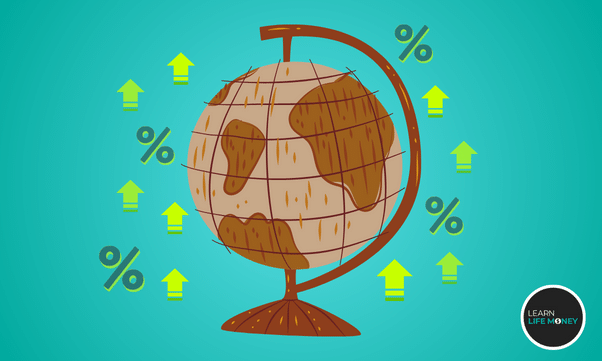
These interest rate rises are designed to try and get a grip on inflation currently out of control across the globe. Interest rate rises are the one thing that impacts us the most financially.
From borrowing to investing and saving and spending, interest rate increases impact every part of our lives where we spend money.
The only real beneficiaries of interest rate rises are those with large savings accounts, but the interest rate paid on these accounts doesn’t reflect the actual base interest rate rises.
In this article, we will be looking into how interest rate rises can impact us in various parts of our lives financially and how we can offset the impact on us all.
How do people cope with rising inflation?
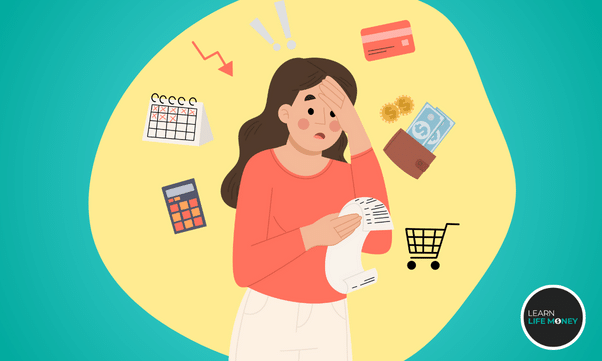
Many people all over the globe are adjusting their budgets to cope with rising inflation, a looming recession, all-time high energy bills, and gas prices.
In this blog post, we are looking at how these latest dark clouds over your financial well-being will impact you and what you can do about it.
Please remember, though, that I am not a financial advisor. Everything I talk about on my website is from my own experience or opinion.
Seek the advice of a finance professional before making any financial decisions you are not 100% sure about.
Mortgages
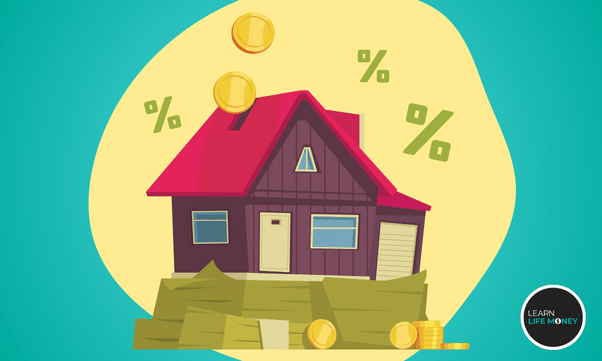
It doesn’t matter if you are a homeowner or a renter; mortgage rates will impact you similarly. Landlords will likely have a mortgage on the house you are renting, so interest rates will affect them. Even if they don’t, the rent in your area will likely increase to stay in line with the other houses in the area.
Loans for homes are seeing a huge increase in cost, and many people coming to the end of a fixed-rate deal on their mortgage will be in for a real shock. If you fell into a new mortgage rate deal around 12 months ago, you are pretty lucky, as you aren’t going to find any great deals on the market at the moment.
And if you can re-mortgage into a better deal than the variable rate looks, you are best doing that as soon as you possibly can, as I don’t think the near future for securing a great deal is looking all that great, and the longer you leave this, the worse it may get.
If you have a good loan-to-equity ratio on your house, you can get some better deals, but if you are new to buying a home or are actively looking now and don’t have a hefty deposit, some of these deals are going to be difficult to find.
What can you do about it?
If you can afford it, the best thing to do is to start overpaying on your current mortgage. If you are currently in a fixed rate contract on your mortgage, make sure you check with your lender how much you are allowed to overpay per year.
This is usually set around 10% of the mortgage balance. If you are on a variable rate, you are free to pay off as much as you want per year without financial penalty but still double-check with your lender.
What Happens If You Are Looking To Buy A Home In This Economic Chaos?
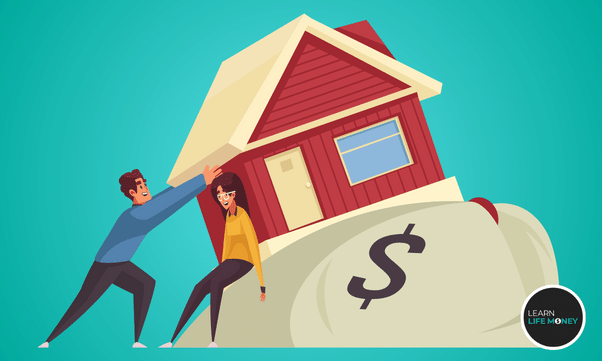
Well, this could be good news for you. As mortgage rates increase, housing market price growth is likely to slow down, meaning that the house you wanted may be cheaper than 12 months ago or has not increased as fast as house prices would have before the interest rate rises.
I would recommend buying sooner rather than later as there is every chance that mortgage rates can increase further, and as I have said in a previous article, make sure you are within your monthly budget. You have allowed for a large interest rate rise so that you know you are safe if interest rates get out of hand in the future.
Credit Card Debt
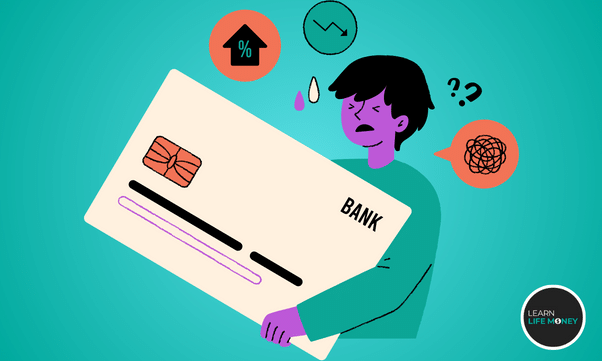
If you are a regular reader of the website, you will know that I advocate paying off all high-interest debt before you do anything, but I’m sure you don’t need me to tell you that this is the sensible thing to do.
Base rate interest hikes will hit your credit card debt even more than the extortionate rate the credit card companies already charge.
Your lender is duty-bound to tell you about any interest rate increases they are applying to your credit card, so you should receive a letter to tell you about this when the time comes. Never pay the minimum amount on your credit card debt.
Always pay as much as you can. Please try to avoid spending on credit cards unless it’s an emergency or you have the intention to pay it off in full when the bill comes.
Prioritize paying off the highest-interest debt first, and if you can, try to consolidate the credit card debt onto one card.
If you are lucky enough to have a great credit score, you may be able to do a balance transfer to a 0% introductory credit card which could, for a small fee, allow you to pay off your debt interest-free for up to 24 months in some cases.
Divide your balance by the number of months you have as an interest-free period, and make sure by the end of your introductory offer. You have paid off the credit card in full. This, on its own, will save you a huge amount of cash in interest payments.
Car Loans
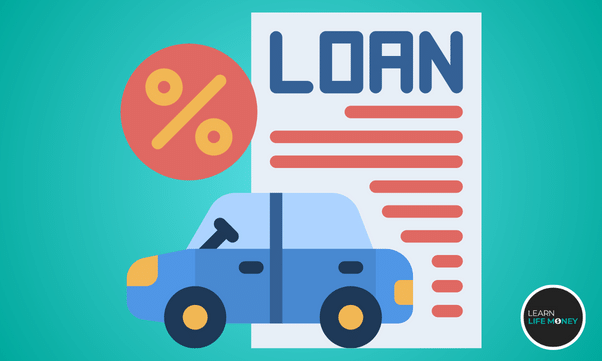
The interest rate on your car loan is likely to increase too; most car loan rates are based on your credit score, so it’s important that you keep your credit score in check, as it should be your priority at any time, but especially so during times of financial chaos.
If you are on a fixed rate for your car loan, the amount you pay should not increase over the agreed term, but when you come to get a new car or renew your loan, that interest rate will increase.
So, make sure you keep your eye on your credit score. Make sure you don’t have any credit searches on file months before you are going to make a big purchase. This will ensure you get the best rate possible on your car loan.
The Stock Market
When there are raised rates of interest, in simple terms, it means that borrowing becomes more expensive for individuals and businesses. While the interest rate increase doesn’t directly impact stocks, the stocks are indirectly impacted because there is less money for consumer spending.
With people having less money to buy products, businesses are making revenue. Therefore, their stock price will suffer as a result.
How the stock market reacts to interest rate changes?
The stock market reacts to changes in interest rates because interest rates generally signal the economy’s strength. The interest rate change will also change a company’s costs to conduct business and, therefore, may change how investors perceive the value of that company.
As has been the case for the past few years, with interest rates at an all-time low, it has been easier for businesses to branch out into new ventures because borrowing costs are so low. If the cost of borrowing is higher, businesses tend not to want to try to venture into new things as the risk is much higher.
Therefore any economic growth for innovation is stifled by the cost of borrowing, and businesses tend to stick to their core competencies, meaning that the chance for the stock price increase is lowered because they are not breaking into new markets, developing new products, and driving the company forward.
Stocks fall due to the rising interest rates.
Although rising interest rates will cause the stocks to fall, it’s important to see the opportunity here and grab some bargains if you can afford them. Stay focused on long-term investing and keep buying while the stock prices are low.
This way, you will have made great gains in your portfolio when they return to previous levels.
Remember that in times of low-interest rates, consumer spending gets out of hand; it’s only a matter of time before governments must reign it in due to high inflation.
What has led to rising interest rates?
Looking at what has gone on in the world over the past 2-3 years and the amount of money artificially pumped into the economy, this current economic crisis was inevitable.
Since the Bretton Woods agreement collapsed in July 1973, the value of the dollar was tied to the holdings of gold, and all other currencies were pegged to the United States dollar. Governments worldwide have been able to continue to print money as they wish without needing to have the backing of gold to support it.
For every dollar printed, every dollar in your pocket is devalued because there are more in circulation, but that’s for another article. If you would like me to go into this in more detail, let me know in the comments below.
Pensions and 401ks
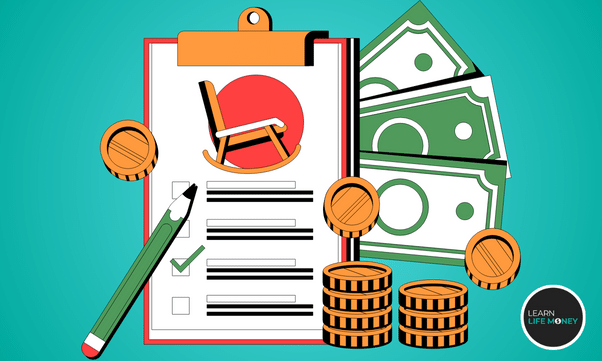
To put it bluntly, the rising interest rates could cause the value of pensions and 401ks to fall. This is likely to happen due to falling bond prices and stock prices, which is what happens when interest rates rise.
Higher interest rates are typically not suitable for stock market investors, which include millions of pension savers. Most pensions are invested heavily into the stock market, so if the markets are down, your pension pot is heading the same way.
Remember, though, that pensions are long-term investments, and unless you are retiring at this exact moment, the likelihood is that this won’t impact you if you aren’t retiring for years to come.
People Looking to Retire
For people looking to retire shortly, think twice about if this is the right time. Maybe work a couple of extra years to ride out the storm and carry on contributing to your pension pot.
For those who are drawing on their pensions now, if you are not drawing the whole thing out at once, the likelihood is that it will have minimum impact on you. The balance may have dropped for now. Still, you will be drawing the pension over the next 20 years. In a couple of years, everything will hopefully get back to normal, so don’t panic.
There really is nothing you can do about rising interest rates on your pension, but the worst thing you can do is to stop contributing to it. Keep your head down and keep contributing to your pension; when the markets recover, so will your pension pot.
Interest Rate Increases are Good for People Who Have Savings
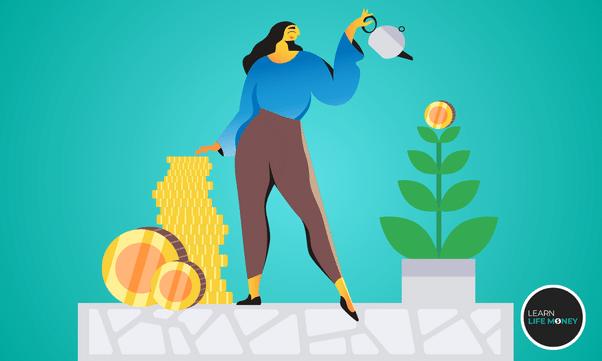
Rising interest rates mean that the rate that the central bank pays you on your cash deposits in your savings accounts will also be higher. But holding cash is never the best idea unless interest on your savings is around 10%, which it will never be.
With inflation skyrocketing currently, you will still be seeing negative returns on saving account interest as the inflation figures will erode any gains you make with the interest.
It’s far better to invest your money in the markets with a long-term view to capitalize on the gains as the economy recovers.
Frequently Asked Questions About How Interest Rates Impact Your Finances
How do interest rates impact my savings and investments?
Higher interest rates can lead to increased returns on certificates of deposit, savings accounts, and other fixed-income investments. Conversely, lower interest rates may result in lower returns on these types of investments.
How can I take advantage of low interest rates for borrowing?
Low interest rates can be an opportune time to refinance existing loans, such as student loans or mortgages, to lower your monthly payments and save on interest costs potentially. It’s also a good time to consider taking out new loans for major purchases.
What should I consider when deciding between fixed and variable loan interest rates?
Fixed interest rates provide stability, with consistent monthly payments. Variable rates may start lower but fluctuate, potentially leading to higher payments. Consider how long you plan to hold the loan and your risk tolerance.
How do central banks influence interest rates, and why does it matter?
Central banks, like the Federal Reserve in the U.S., set short-term interest rates to manage economic conditions. When they raise or lower rates, it can impact borrowing costs for consumers and businesses, influencing spending, investment, and overall economic growth.
Final Thoughts on How Interest Rates Impact Your Finances
With interest rates predicted to be out of control for the foreseeable future and the current global turmoil not doing a great deal to help any economy, the best way forward is to keep a very close eye on your outgoings.
This is easier said than done, but if you have a really good idea of what you’re spending your money on, it will be much easier to work out where you can make some cutbacks should the need arise.
One way to do this is to set up a budget and track your spending over a period of time. This will help you to see where your money is going and whether or not you are able to stick to your budget.
If you can afford it keep investing in your retirement accounts while stock prices are low, and remember to keep an emergency fund in case you should need it.
With a little bit of planning and some careful spending, you can weather any interest rate storm.
In short, stay vigilant with your finances, and don’t take any unnecessary risks.
#Interest #Rates #Impact #Finances


